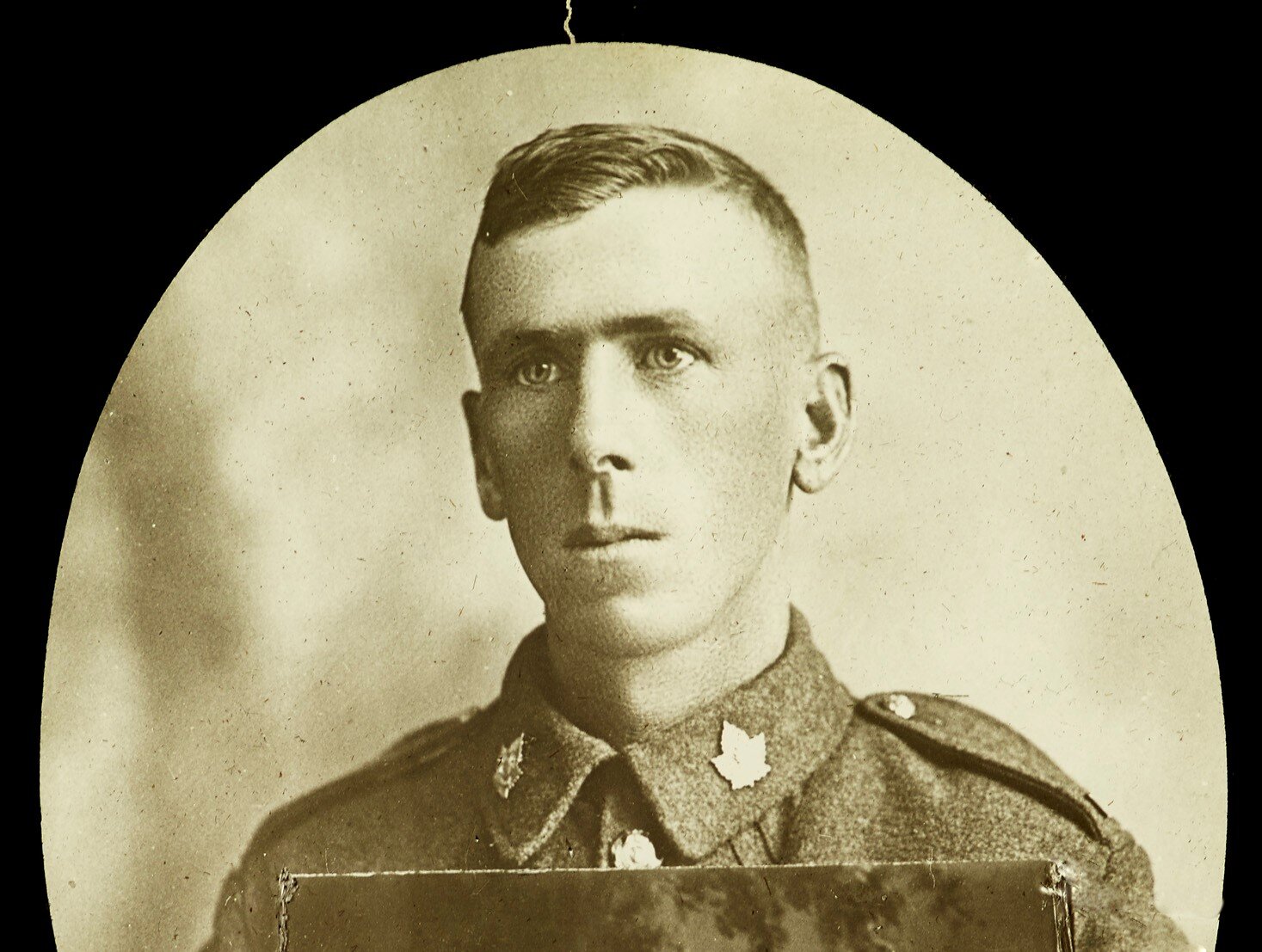
Thomas Scott
Freebairn
Killed In Action 17 June 1915
“We knew there was something was wrong. We started to march towards Ypres but we couldn't get past on the road with refugees coming down the road. We went along the railway line to Ypres and there were people, civilians and soldiers, lying along the roadside in a terrible state. We heard them say it was gas. We didn't know what the Hell gas was. When we got to Ypres we found a lot of Canadians lying there dead from gas the day before, poor devils, and it was quite a horrible sight for us young men. I was only twenty so it was quite traumatic and I've never forgotten nor ever will forget it”.
Private W. Hay of the Royal Scots
Thomas was born in Scotland in 1892 to Scottish man James Steel Freebairn and his Irish wife Eliza Doyle. When he was just a few months old, the Freebairns moved to County Down with their four children Rachel, Lizzie, James and baby Thomas. They then moved to Belfast - to Gainsborough Drive, presumably to follow the father's work as a yarn dyer. Five more children were born in Ireland.
Between 1909 and 1914, starting with the eldest child Rachel, one by one, eight of the nine children and both parents emigrated to Philadelphia, in the United States. The only child not found to have emigrated was James.
When war broke out Thomas was one of the first to enlist in the first contingent of the Canadian Expeditionary Force in September 1914, serving in the 3rd Toronto Regiment, Infantry Battalion.
Thomas was reported missing on 17 June 1915 during the Second Battle of Ypres, at St Julien, where the German Army unleashed the first poison gas attack on the Western Front. He remained missing on the casualty lists before finally being 'presumed Killed in Action' over a year later in August 1916.
As the only image of a man in a Canadian uniform, we have tentatively identified this image as that of Thomas Scott Freebairn.
Canadian physician Lieutenant Colonel John McCrae wrote his poem 'In Flanders Fields' during the Second Battle of Ypres on 3rd May 1915. From this grew the lasting memorial of the First World War – the poppy.
"Poppy Field (Chollerford)" by wazimu0 is licensed under CC BY 2.0
In Flanders fields the poppies blow
Between the crosses, row on row,
That mark our place; and in the sky
The larks, still bravely singing, fly
Scarce heard amid the guns below.We are the Dead. Short days ago
We lived, felt dawn, saw sunset glow,
Loved and were loved, and now we lie
In Flanders fields.Take up our quarrel with the foe:
To you from failing hands we throw
The torch; be yours to hold it high.
If ye break faith with us who die
We shall not sleep, though poppies grow
In Flanders fields.John McCrae, 1915
